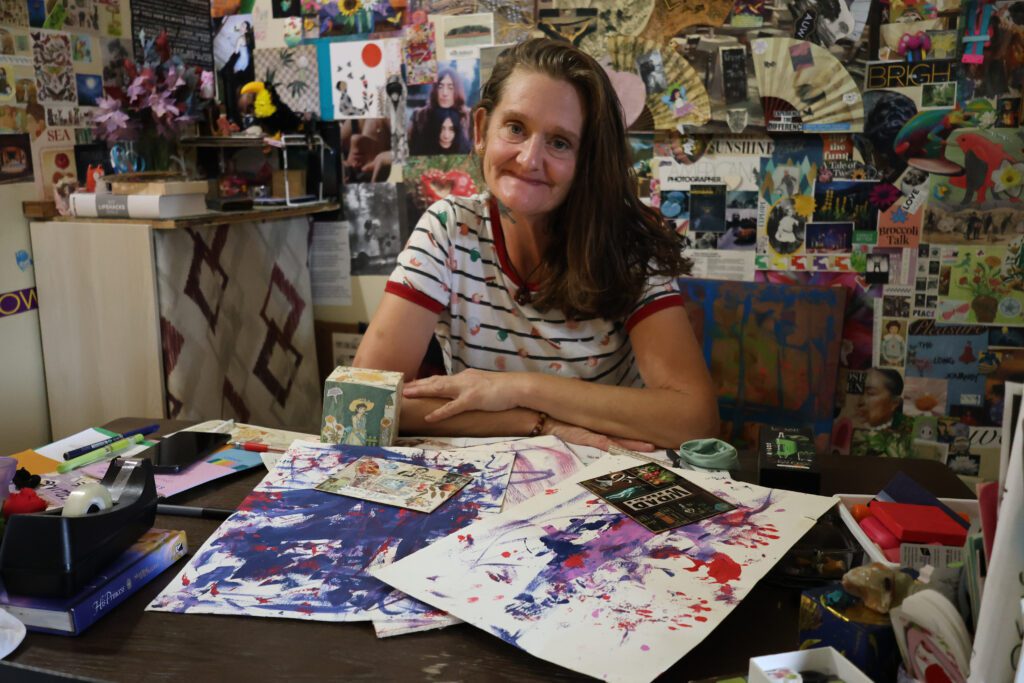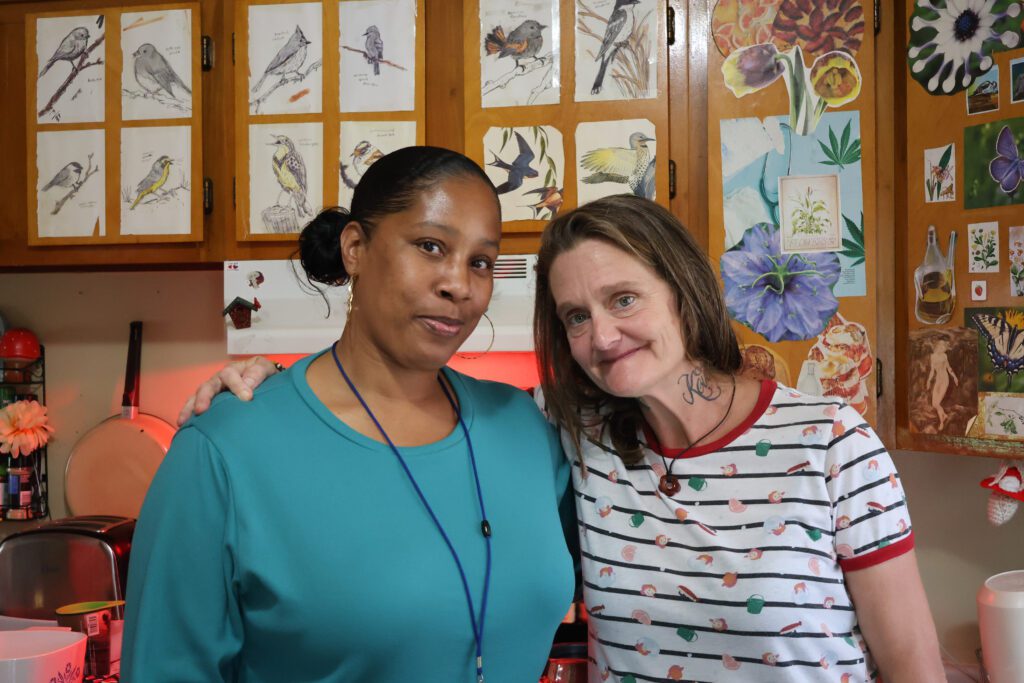“The best feeling”
Tiffany has fought hard to find her sense of self-worth and belonging. She remembers how isolating it felt to be raised with two older brothers who were the stars of her family’s eyes, and no matter how hard she tried, she was treated as an outcast and black sheep. Sick of the neglect, Tiffany decided to run away from her small town. Without a support system, she became homeless at 17 years old.
By age 30, Tiffany was chronically homeless, spending each day of the last three years of her life outside. Over time, this worsened her feelings of shame and isolation.
“I was accustomed to thinking I was nothing,” shares Tiffany. “I wasn’t doing much of anything that I was proud of. Now, I’m doing good and I know it.”
Tiffany was first introduced to Homeward Bound in 2010, not long after moving to Asheville in search of a second chance. She remembers meeting Amanda Thomas, a long-time Homeward Bound staff member who became her first Case Manager. “Amanda has seen how far I’ve come—she’s seen the beauty that’s come out of my story.”
Tiffany moved into her first home in 2011, but transitioning out of homelessness isn’t always linear. Like many of us, her sense of stability depended on her surroundings—and the right housing placement made all the difference. With continued support and a home that truly meets her needs, Tiffany has found her footing. Thanks to Homeward Bound’s HACA program, she has now been stably housed for nearly two years.

“Homeward Bound never gave up on me. They never did. And it’s been nothing but great for me. I’ve got a sense of belonging. I have a sense of security. I call it my sanctuary because I get to make decisions in my life today. I get to say who comes in and out of my house. And having that freedom and independence is just absolutely the best feeling. A euphoric feeling comes over me every time I put my key in my lock.”
Tiffany has found joy in her home. She loves cooking in her kitchen, relaxing on her back porch, creating collage art, and spending time with her dog and best friend, Mystical. In addition to having her own space, Tiffany’s relationship with her current Case Manager, Zoey, has been transformative. Tiffany shares that it took time to build trust, especially given a difficult relationship with her mother.
“She showed me how to present myself, how to advocate for myself. Zoey tells me, ‘Tiffany, it’s okay to say no. No, period.’ I never thought I could say that. I always felt like I had to please somebody.”

With this new confidence, Tiffany feels stronger than ever—able to speak to her property manager, navigate appointments, and live on her terms. She wants to use her stability to become a peer support specialist and use her story to help others, especially women escaping domestic violence or navigating life after homelessness.
“Whatever comes my way, if I can help them—that’s what I want to do. I want to give back because it was so freely given to me. I want to shout my story to other women and tell them they can do it too. There are some beautiful, strong women out here who deserve as much as I got and more.”
Above all, Tiffany wants Asheville to see the humanity in every person experiencing homelessness.
“These people out here on the street—they’re amazing people, and they deserve a chance. What you see isn’t always the whole story. Take the time. Sit down and talk to one of us. I think it would change your whole outlook.”
Tiffany plans to set up an art display next to an alcove on a street in downtown Asheville where she used to sleep. She hopes to turn a part of her journey into something inspiring.

